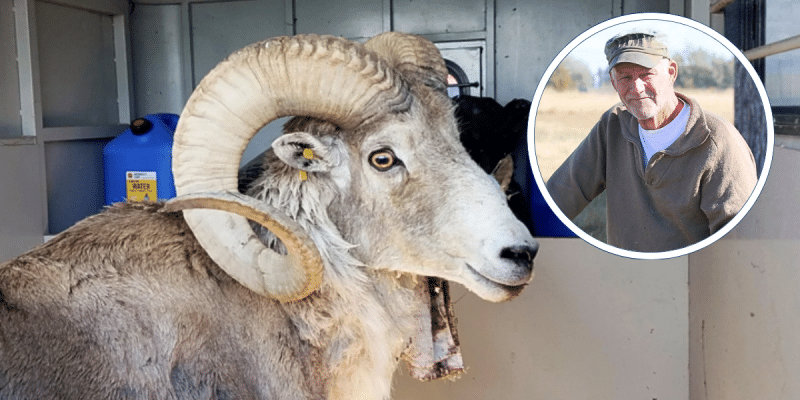Arthur “Jack” Schubarth, an 80-year-old from Vaughn, Montana, confessed on Tuesday to two serious wildlife offenses linked to his role in creating supersized hybrid sheep for hunting on private ranches.
The U.S. Department of Justice issued a press release regarding the situation.
Operating under the business name Sun River Enterprises LLC, also known as Schubarth Ranch, Schubarth’s 215-acre ranch specialized in trading “alternative livestock” like mountain sheep, mountain goats, and various ungulates, mainly for captive hunting.
Legal documents reveal that between 2013 and 2021, Schubarth teamed up with at least five others to breed a unique hybrid sheep species, hoping to fetch higher prices in the captive hunting market. This involved illegally bringing in animal parts from central Asia, cloning them, and then breeding them to produce larger hybrid sheep. The process started with sneaking sheep parts into the U.S., then creating 165 cloned embryos in a secret lab, according to the U.S. Department Of Justice.
One standout result of this scheme was a single genetically pure male sheep named ‘Montana Mountain King’ (MMK), born from implanted embryos on Schubarth’s ranch.
MMK’s sperm was then used for artificial insemination, producing hybrid animals for hunting on large ranches. To move these hybrid sheep around, Schubarth forged vet certificates and sometimes sold MMK’s sperm to other breeders in the U.S.
Aside from these activities, Schubarth sent 15 artificially inseminated sheep to Minnesota in 2018 and sold 37 doses of MMK’s sperm to an undisclosed person in Texas. He also offered to sell an MMK offspring, dubbed ‘Montana Black Magic,’ to another Texan for $10,000. Discussions between Schubarth and unnamed collaborators even included picking a name for this new breed, with suggestions like “Black Argali” being tossed around.
The charges against Schubarth include breaking the Lacey Act and conspiring to do the same, which involve illegally getting, moving, or selling wildlife against federal laws. Each felony carries a maximum punishment of five years in jail, a fine of up to $250,000, and three years of supervised release.
Schubarth’s sentencing is set for July 11, and is to be determined by Chief U.S. District Court Judge Brian M. Morris for the District of Montana.

